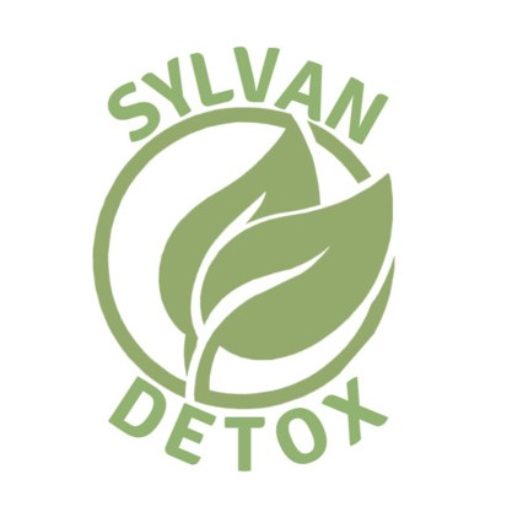What Are Addiction Triggers?
An addiction trigger is any type of thought, emotion, location, or event that can cause a person to feel stress, despair, cravings for drugs and alcohol, or the fight or flight response, leading to compulsions or urges to use substances. These are different for every individual, depending on the underlying issues that caused their addiction, as well as their history, and where they are in their recovery. Common triggers for substance use disorder relapses include:
- Being in a location where you used to drink or use drugs
- Memories that romanticize substance abuse or traumatic memories that cause stress reactions
- Seeing something in the media (TV shows, movies, or the news) or reading something in a book that reminds you of substance abuse or causes emotional distress
- Being in a party atmosphere with easy access to substances
- Feeling bored, isolated, or lonely
- Experiencing conflicts at work or at home
- Feeling judged or misunderstood
- Feeling unsafe or feeling a loss of control
- Experiencing symptoms of mental illness like anxiety or depression
If you are in recovery and a holiday is coming up, you may feel worried about how you will be able to handle triggers and temptations, and you are not alone. Millions of Americans are in recovery right now, dealing with uncertainty, and trying to manage the expectations of their friends and family while keeping their recovery at the forefront of their decision-making.
If you or a loved one is suffering from any form of addiction or abuse, please call Sylvan Detox at (818) 308-3099.
Why the Holidays Can be Especially Triggering
During the holidays, like Christmas or Thanksgiving, these triggers can be made worse because of the traditions, the overall pressure to “be happy” during the holidays, the financial stress, and being around family and friends. Often drinking and drug use come hand-in-hand with celebrations, with people even normalizing drinking in the mornings while they are off work, which adds temptations to an already volatile situation for those trying to avoid such situations.
With the stress of having a long to-do list of preparations, purchasing gifts, sending holiday cards, and getting together with loved ones, along with the increase in parties and alcohol-fueled gatherings you are expected to attend, it is no wonder the holidays can be a difficult time for those in recovery, especially if you are traveling or have guests who disrupt your healthy daily routine. Substances are more accessible than ever, and you may even feel pressured to participate.
Even if you do not take part in the festivities, you may experience stress because you feel left out. Feeling lonely, misunderstood, anxious, and upset during the holidays, combined with complicated family relationships being amplified and the pressure to exude “holiday cheer” may cause you to wish you were still drinking or using drugs, a dangerous line of thought to follow that can lead to relapse. Those in early recovery are the most vulnerable, as they are still learning how to navigate societal pressure, complicated feelings, and life’s challenges as a sober person.
How to Manage Addiction Triggers During the Holidays
Some of the ways you can manage your holiday addiction triggers while enjoying your time during the holidays include taking steps to:
- Speak to loved ones beforehand, and let people in your life know what you need from them to be able to spend time with them during the holidays, setting reasonable expectations through open communication
- Have an exit plan and advocate for yourself, opting out of gatherings if they prove to be too much for you
- Create firm boundaries with your loved ones, as family members may be prone to pushing your buttons and they may be in denial about your addiction
- Maintain your usual schedule when it comes to sleeping, mealtimes, and taking medication, and continue your exercise routine
- Know that your recovery is the number one priority, and you can choose to attend fewer events and gatherings to maintain a sense of balance and control in your life
- Plan ahead with responses to questions about your sobriety and what to do if somebody offers you a drink or drugs
- Look for positive moments, connections, validations, and experiences
- Schedule more appointments with a therapist during the holiday season and/or schedule a check-in with your sponsor during family visits or holiday gatherings
- Plan ahead before visiting family, especially if a family member elicits strong emotional responses from you, or if you have a tense relationship with somebody, and remain mindful of stress levels and how you feel, both emotionally and in your body
- Invite a sober friend along with you to gatherings for support
- Maintain realistic expectations for yourself, as every event and conversation may not go smoothly for you, especially if you have strained relationships due to addiction
- Throw your own sober holiday party, or attend family-friendly sober events over attending late-night house parties or going out to bars
- Go to addiction support meetings regularly and try to incorporate natural and healthy stress reduction methods into your days, like breathwork, meditation, or exercise
What To Do If You Relapse During the Holidays
There are three stages to a full-blown relapse. There are:
- Emotional relapse – you may feel emotions like anger, anxiety, or despair, feeling discontent but not thinking about using drugs or drinking yet. The holidays are a time when these emotions may be heightened. Noticing your emotions and taking steps to reduce stress can help you avoid relapse.
- Mental relapse – the second phase of relapse is having thoughts about drug and alcohol use, romanticizing it, telling yourself it would be ok if you just had one drink, or believing you would be having a lot more fun if you only had some drugs. These thoughts can begin passively, but the more you entertain these ideas, the stronger the impulses to use will be. At this stage, it is best to reach out to trusted loved ones, sponsors, therapists, or other addiction specialists, removing yourself from temptations and avoiding celebrations where drugs and alcohol are present. Put your recovery first.
- Physical relapse – the final phase of relapse is actively using drugs or alcohol again. If you slip up. It is not the end of the world. You do not need to beat yourself up or give up completely. Remember, the road to recovery is a messy one, and all you can do is continue to move forward in the direction you want your life to go.
If you relapse, you can learn from it, and move on. Stop using substances again and continue following your recovery plan. If this proves to be too difficult for you, you may wish to try living in a sober living home or return to rehab. Over the holidays it can be difficult to find immediate help, but you can talk to trusted loved ones or friends about it, and there will likely be 12-step groups, peer support, hotlines you can call, or therapists who can assist you right away. Get yourself to a sober-friendly place for support. You will be okay.
Addiction Support Groups
There are several types of addiction support groups, many of which run as usual during the holiday season. You are not alone if you find this time of year challenging, and can find plenty of peer support and camaraderie in support groups like:
- 12-step groups like Alcoholics Anonymous or Narcotics Anonymous
- SMART recovery groups
- Alumni groups
- Sober living homes
- CBT or other group therapy sessions
Addiction Recovery at Sylvan Detox
At Sylvan Detox, we provide comprehensive inpatient treatment programs for drug and alcohol detox and rehabilitation, along with mental health programs in our luxury treatment center in Woodland Hills, California. We provide high-quality care and support to our patients, with programs that include behavioral therapy, individual therapy, group therapy, fitness and nutrition programs, creative healing programs, medication-assisted treatment (MAT) plans, dual diagnosis treatments, and holistic care like yoga, breathwork therapy, massage, sound therapy, and spirituality. We offer connections to outpatient programs, sober living homes and 12-step programs, and provide denial management and relapse prevention training to all patients.
If you have begun using drugs and/or alcohol again, returning to rehab is not a failure, and you have done nothing wrong. It just means that you have not had the treatments that work for you yet. At Sylvan Detox, we will work alongside you through a comprehensive, individualized treatment plan to help you heal the underlying causes of your addiction, treat emotional pain, teach new ways of coping with stress, provide relapse prevention strategies, and help you learn new healthy ways to think and act that will benefit your future. Please call our center today and get back on track as you take back control of your physical and mental health, and work toward a healthier, happier sober future.

